The War of Art
by Steven Pressfield
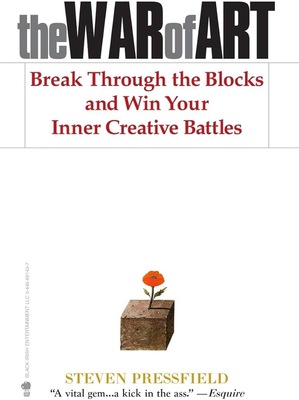
This is a short and entertaining book about art and its creation process. It describes the challenges, and shows what the process of art creation is and is not. I don't take it seriously, but there are some good quotes.
After thinking why anyone should read it, I'm struggling to come up with a reason. So I have to downgrade my rating from 3 (average) to 2 (meh).
The Great Mental Models, Volume 1 General Thinking Concepts
by Shane Parrish
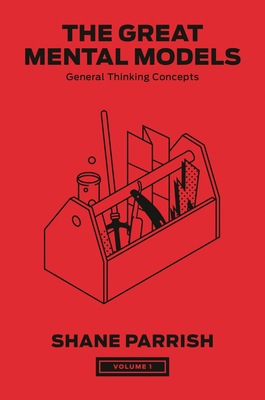
The book is a compilation of some principles that could help to make better decisions. I found it a good reminder, but I think such a book format is not very valuable. While I'm fully onboard with promoting mental models, the book lacks depth. I find it hard to apply random principles in practice. Just because we know what it is, doesn’t mean we can use it.
The book is short and to the point, which is always appreciated. It seems like the author is planning to write a series of books. But this book didn’t resonate much, so I won’t be reading the following volumes.
The Myth of Normal
by Gabor Maté
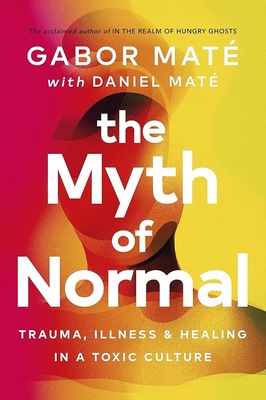
I finished 35% of this book and decided to stop. The book is unnecessary long and lacks coherence. The author makes big claims but fails to support them with equally sized facts. Also the book pushes on emotions with many individual stories, and lacks analysis of the discussed topics.
My recommendation is to avoid this book.
Radical Candor
by Kim Scott
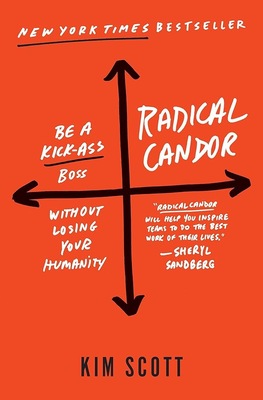
This book has been a long time on my to-read list, and reviews are high. Recently I saw startup incubator was recommending it so I got it. And oh my, this book is poorly written. The book feels like an author's career brain dump. It's waaay too long, full of name droppings and lacks insights.
The book has two parts. The first part is about the "radical candor" concept. In short, be honest and direct at work, it's more productive for everybody. The second part is a collection of management tips. Most of them are common sense for an average manager. But it was still interesting to read Kim's experience and use it as a reminder.
I think as a society we need better managers, so I welcome any management content. High ratings of this book is just another proof of how bad we have it.
The Courage to Be Disliked
by Ichiro Kishimi and Fumitake Koga
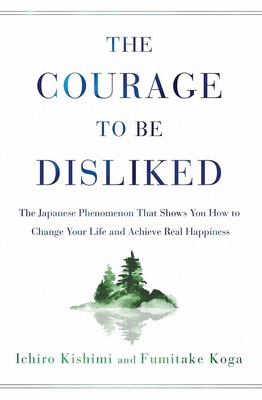
Wow, this book is a nice surprise. It's so good that after finishing it I decided to reread it straight away. The book talks about Adlerian Psychology. This is my first introduction to it, which is interesting considering it's one of the top three most influential branches in psychology among Freud and Jung. I think Adler's ideas are not popular enough in society. Fortunately past trauma healing is becoming more accepted as it allows people to understand their behaviour better. However it's also unfortunate because it often serves as an excuse for people to not change themselves.
The book controversially denies trauma existence, which is the most common complaint in the book reviews. However I think those people missed the point. The author does not deny bad experiences and that they shaped our lives. The book stresses that when thinking about the future, the past has little value. What matters is the present and your today's decision to change your life. To accept trauma healing and other personal growth you first need to decide to change.
The book is relatively short and extremely dense. The dialog format is refreshing and works very well. It's easy to understand and follow. My only complaint is that the youth part is unrealistically aggressive.
I think this book is a must read for everyone.
Escaping the Build Trap
by Melissa Perri
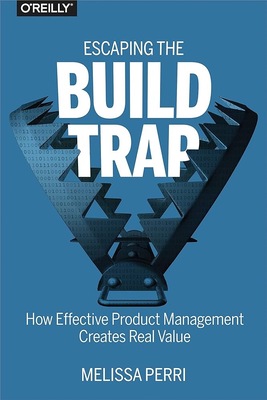
This book is a great introduction to product management. It touches on many aspects and is quite comprehensive. It reminds me of Modern Software Engineering book but for a product. My main takeaway: talk to your customers. I see how many company issues are coming from lack of information. All employees want clear company direction so they know what to prioritise, but the CEO can set the vision without good information, hence flaky direction. Product managers can only prove or disprove ideas with customers and other stakeholders. I like how the book describes the role: product managers are not who come up with ideas, but who stop bad ideas.
I love how the book is written and structured. It's easy to follow, has plenty of examples and the content of the book is explained with one fictional example through the book.
While I feel the book comes from experience, the book itself is only partially practical. It's a good overview. While a high level mindset is important, it's a different task to apply it in practice. There are many cultural, people, and organisational challenges that prevent good product management.
I highly recommend this book to all product managers, senior leadership and entrepreneurs. Like the book highlights, product culture spans to the whole organisation.
Outliers: The Story of Success
by Malcolm Gladwell
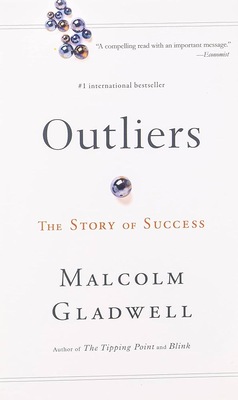
Interesting book that analyses what makes exceptional (aka outliers) people great. The author argues it's not what we think. My experience aligns with the reasoning. In short it's two things: opportunities and ability to seize them. It seems the former is much more important though.
The book also talks about the effects of legacy on our success. I didn't think about it too much, but it's definitely a common experience in my career when working with people from different cultures.
The book is full of stories and historic examples, which makes it easy to read. It could benefit from better highlighting the point in each chapter though, which would help in remembering it.
The 7 Habits of Highly Effective People
by Stephen R.Covey
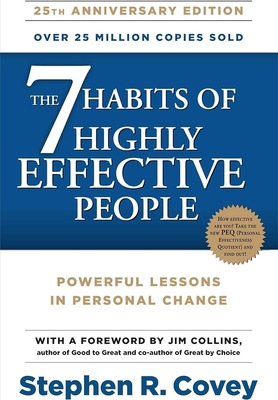
This was one of the first self-help books I've read, which was about 15 years ago. This month I decided to reread it, as I couldn't remember anything from it.
The book touches on many main points and that's why it's great. However most of the book is common sense. It's hard to disagree or be life changing.
The interesting part for me was to see development stages Dependence, Independence and Interdependence which are the same in Intimate Communion book.
I like the sequential model Stephen presents, however the delivery is bad. 7 habits are not habits at all, more like principles or groups. The book mentions a lot and yet it's still far from being comprehensive or foundational.
I'd recommend this book to people who are new to self-development. You'll feel like you've discovered super power, but most likely little will change for you. That's expected, use that energy to read more practical books next.
P.S. I couldn't find the audiobook of the text. All I could find is some author's commentary. Keep in mind the book is different.
Intimate communion: Awakening your sexual essence
by David Deida
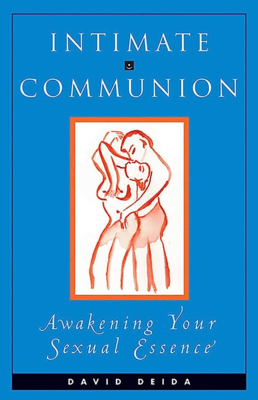
I recently recommended this book to my friend and decided to re-read it. It's still one of the most influential books I've read and I can't recommend it enough to everybody.
The Cold Start Problem: How to Start and Scale Network Effects
by Andrew Chen
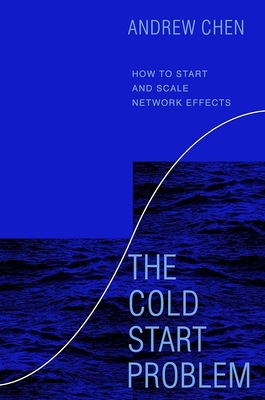
This book has one or two good ideas but overall it's a waste of time. You might like it because it's full of unrelated success stories backed by survivorship bias. My recommendation is to avoid.
The Master and Margarita
by Mikhail Bulgakov

I don't read much fiction, so this book was another occasional dip into it. I picked one of the most popular novels of the 20th century this time.
It's an interesting story and well written. There are many references to history and religion.
I didn't enjoy it though and I was struggling to finish it. Most references were not obvious to me and after researching them, I don't think that would have changed much. In comparison to movies, I found the novel much less dimensional.
If you are into fiction I'd recommend this book. However if the book does not resonate from the start, I don't think it will improve later for you.
Zen and the Art of Motorcycle Maintenance
by Robert M. Pirsig
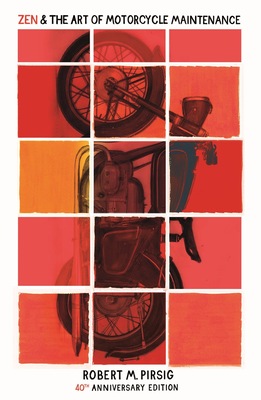
This is one of the most famous books about philosophy. Few years ago my partner at the time gifted me this book for my birthday. She thought it's about motorcycles, so it was an easy choice for her. Over the years I've heard about this book from different sources. The most recent one was in this video.
This is a long book, and seems like the readers split into two distinct categories. Who loved it and found it life changing, or who didn't get it much. I'm in the second group.
It has a story which represents a life journey. I found the book's philosophy a bit shallow. There are two main points to it.
The first one is the talk about classical and romantic approaches. It's a discussion between science and creativity or intuition. The book was written in 1974 when the hippy movement was very popular. Rejection of technology was a common trend at the time. The book talks about the differences between the two ways of thinking and how the best place is to absorb both and be between them.
I think this discussion is still relevant in 2024 as we are still looking for that balance as a society. Interesting that I drew parallels to the movie Matrix. In the second movie people in Zeon city see machines as evil and yet their lives depend on them.
Science vs art discussion is also relevant to my career in software engineering, which is both. Such inconclusive balance baffled the industry for decades and we are yet to accept it as a norm.
The second point is a discussion about Quality. To be honest I didn't get it. I checked multiple book explanations and still don't understand it. So if you know, tell me. Interesting that there is a whole wiki page for it Pirsig's Metaphysics of Quality
The Mom Test
by Rob Fitzpatrick
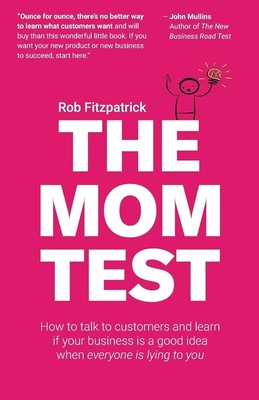
"How to talk to customers & learn if your business is a good idea when everyone is lying to you."
Wow, what a great book. It ticked all the boxes: it was recommended by friend as a great book, it's short, it's practical, it's insightful, it has good structure, it give you chapter summary and cheatsheet.
This book is essential if you want to learn what your customers what. It's a must for product managers and CEOs.
Competing Against Luck
by Clayton M. Christensen
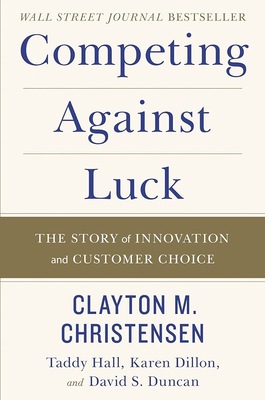
The book talks about how to build companies that solve problems for customers. This book would be a good introduction to people who are new to product development. In short, think of what value you are bringing to a customer. The author phrases it as a Job to Be Done.
The book is short but still too long. It could be summarised in a blog post. While reading I felt that this book was written to justify consulting services Clayton is charging companies.
The book is easy to read and has many stories. Those stories though are suffering from selection bias and have little connection to the book ideas.
I would recommend this book to people who are new to product development, otherwise don't bother. Just read the book's summary.
The Art of Loving
by Erich Fromm
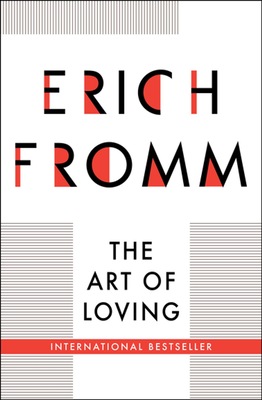
This is relatively short book, but I found it exceptionally hard to consume. The language is very dated. The abstract form of writing doesn't help it either, but probably contributes to its popularity as readers can interpret it in many ways. There are plenty of good bits in the book. The parts that I understood, I don't disagree with anything.
This book is my friend's goto recommendation for a book about love. However I wouldn't recommend it for the stated reasons above.
The Millionaire Fastlane
by MJ De Marco
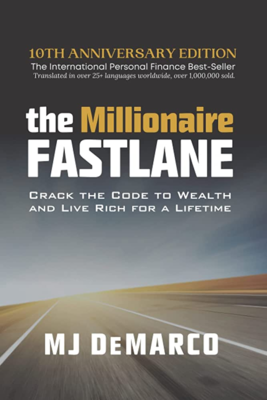
I read and reviewed this book last year. There are not many books that I reread. My opinion hasn't changed, it's a solid read.
ReWork
by Jason Fried and David Hansson
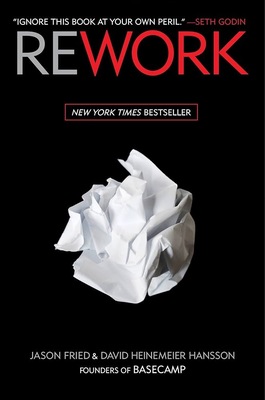
I was re-reading this book for a book club. I read it 7 years ago. You can read my previous review there.
After 7 years, my opinion of the book hasn't changed. It's a good collection of work tips and principles about small companies (but not necessarily small businesses). This book is better than The Minimalist Entrepreneur that I read recently for the minimalist mindset.
I added this book to my founder's must read list.
Rich Dad Poor Dad
by Robert T.Kiyosaki
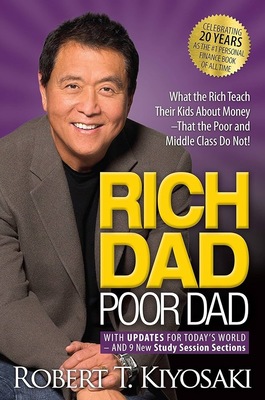
This was one of the first books I read 15 years ago. It was the most upvoted book for a discussion so I thought it would be an interesting experience to re-read and reflect on it.
Now I can see why this book resonates so well with people. It over promises the results and misleads about efforts required and chances of achieving it. The book is mostly inspirational. It has some good quotes here and there to make you believe in ideas. It doesn't teach you much though. It's a good first introductory book to people who know absolutely nothing about finances and don't read books. I think for beginner readers inspiration is more important than heavy content.
However my recommendation would be to read Barefoot Investor book instead. It's easy to follow and full of practical advice.
Discipline is Destiny
by Ryan Holiday
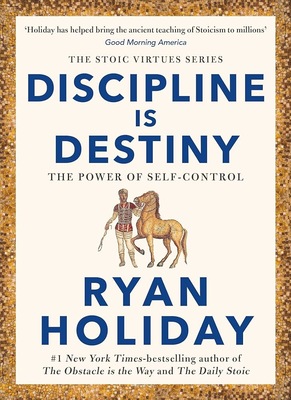
The Destiny book lacks purpose. Maybe except to benefit the author. The book is an aggregate of ideas and examples pulled from other sources. Most of them are good and relevant but deserve to be discussed in a context. The book feels like a collection of notes written through the years and put into a book without connections between them.
This book is a good example of a "popular writer" issue. An author gets popular with one book and then starts producing many books after to milk their fame. Unfortunately fresh and interesting content is hard to produce and takes a lot of time. As a result any subsequent publishing is mediocre at best. My advice, be wary of authors with more than 1 book per decade.
I would not recommend this book to anybody.
The Minimalist Entrepreneur
by Sahil Lavingia

I find the main idea refreshing of building a small profitable business from day one. The book is a little bit inspirational and tiny bit practical. It's very short with a 4 hour audiobook. It is well structured and easy to follow.
Unfortunately I didn't find that book useful. I think the advice is limited and shallow. I think the only people who should read it are people who think unicorn companies are the only way.
The Psychology Of Money
by Morgan Housel
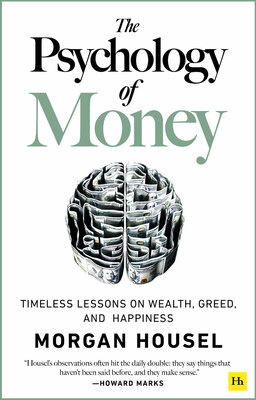
I like how this book is easy to follow and understand. It talks about wealth topics that are not usually discussed or obvious.
For example Warren Buffett who started investing at 10yo and is recognised as one of the greatest investors. His net worth is $84.5 billion. However he accumulated 99.5% of that after his 50th birthday or 96.5% after his 65th birthday. That's not so impressive anymore.
In addition, if you take his investment skills and apply to an average person who starts investing at 30 and retires at 60, their net worth will be $12 million. That's a decent amount of money, but not that impressive for the skills of a greatest investor. And that's a realistic theoretical maximum and your success won't be nowhere near that.
Audiobook format was okay, but keep in mind there are few charts that are quite important. I can recommend this book to everybody who is money conscious. I think you'll learn something new.
Never Eat Alone
by Keith Ferrazz
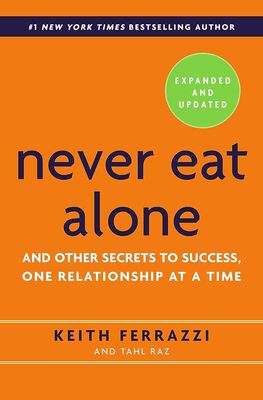
I was disappointed by this book. It's about how to be good at networking. It offers some practical advice, but it's shallow and full of long stories with vague points. As a result the book is way too long with little value. You might find it useful if you need to network for your job, like CEO, politician, journalist, etc. But in general I'd recommend avoiding it.
Principles
by Ray Dalio
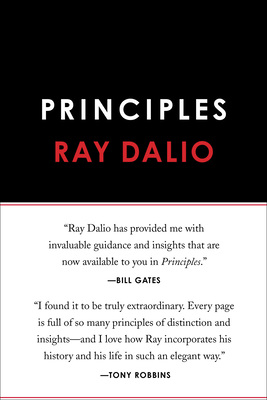
Principles is one of the best books I've ever read.
I was always surprised that there is little to none of the best knowledge transfer between generations. As a result each generation has to start at zero and figure out life themselves again and again. Our technology is improving at a rapid rate, and yet our life skills barely moved, and some could argue even deteriorated over generations. I feel this book serves that stable platform to step on and to move further in life.
Unfortunately I spent a lot of time learning the hard lessons myself. However, on a good side, only after that I can assess the quality of the book. That makes me appreciate it, as it fully aligns with my life experience and world view.
Do NOT listen to the audiobook, but read the book instead. The book is very well structured and that structure is lost in audio format making it much harder to absorb.
If you want to achieve things in your life that book should be your number 1 to start with. If you manage people, it also should be your No.1. I definitely will be re-reading it again soon.
Update 1: There is a summary version of the book called Principles for Success which should be No.1 to read for everybody.
Attached
by Amir Levine and Rachel Heller
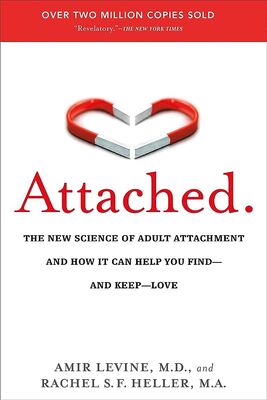
This is a very popular book and I finally got to read it. I like many stories, examples and workshop tasks in the book which make it easier to understand the point.
This book reminded me of the Models book. I feel it touches a similar subject but from a completely different perspective.
The book is generally good and I agree with most of it. However, it rubs me the wrong way.
The biggest problem, the book presents "attached model" as first and primary, while behaviour and skills are seen as secondary. That is also emphasised by the children's research. Such a presentation implies that your attached style is part of you and genetic.
The book could be very damaging if you adopt that thinking model. I'm not talking about the model itself, but the way the book tries to convince you about it. I see anxious and avoidant types are a consequences of communication skills, emotional intelligence, confidence and your relationship model. In other words the book focuses on consequences and not the cause. It does talk about the cause but is relatively minor.
Attached model explains the consequences but it is useless to fix them. Having understanding that there is a problem doesn't help if you don't understand your emotions or can't communicate them. Or expressing only feelings and not needs will get you nowhere. Unfortunately I met people who fell into the trap of using the attached model as a primary tool and got even more frustrated after not seeing improvement.
I definitely recommend this book, but with a big big caution. Read the arguments and ignore the model, it's just a distraction. Instead focus on primary factors like skills and behaviour. And probably read another book after to improve those.
Stolen Focus
by Johann Hari
Why you can't pay attention and how to think deeply again.
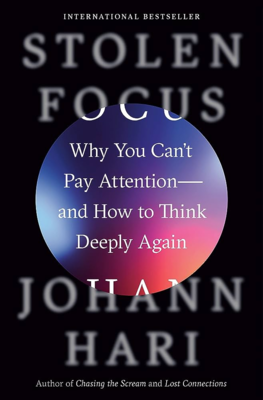
Few friends recommended this book. I enjoyed it as well. The author talks about the factors that reduce our attention and focus. I like that the book takes one step back and looks at a bigger picture beyond what is commonly recognised like social media. That includes low rates of sustained reading, mind-wandering, stress, diet, pollution, over protectiveness of children.
I like that the author highlights that we shouldn't blame all failings to ourselves and consider the overall environment. It is often working against you and it's very difficult to succeed in such conditions.
The book is well structured and easy to follow. It could be shorter without personal stories, but overall it's very enjoyable to read. It goes well as an audiobook as well. I'd recommend it to everybody for general awareness.
Intimate communion: Awakening your sexual essence
by David Deida

This is not as famous as The Way of the Superior Man book (which I didn't like due to language) by David Deida. Intimate communion defines and talks about masculine and feminine. I found it interesting that the book is 28 years old and it seems back then people had difficulties with understanding those concepts. It feels the book is even more relevant and needed these days.
I really enjoyed the book and it helped me to understand myself better and what relationship I want. The book is purely subjective but I found my personal experience fits extremely well into the models provided.
The book is a bit repetitive and could benefit from a better information structure and delivery. But I didn't find it too distracting.
This book is a great companion to the Mating in Captivity book. They talk about the same principle but completely from different perspectives.
How to start thinking on monday and not finish on tuesday
by Anton Petryakov

This book is a good compilation and summary of many core concepts essential to living in the modern world from other books. I like how consumable the author makes the content. That's the best part.
On the negative side, some of the explanations are wrong or misleading. In short, enjoy the summary of other books, and be wary and ignore ideas coming from the author himself.
Author could have spent more time on research. I'm in a rare position to say that. The author references 11 books. 1 of them is his previous book, and I've read 5 out of the remaining 10. It's only with deeper knowledge I was able to spot some of the weak arguments and wrong conclusions.
Despite a quarter of the book being wrong, I would still recommend this book to everybody. The value of the remaining 3/4 is worth it, since you probably won't read the originals.
Dopamine Nation
by Anna Lembke
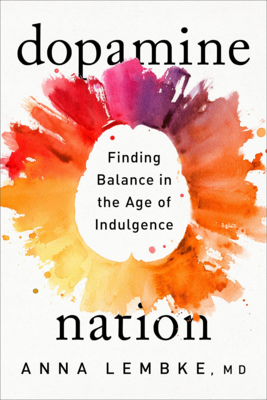
This is quite an interesting book which I found easy to consume. It talks about pleasure and pain. Think of it as addictions and bad habits. I think this book complements Atomic Habits book well. Dopamine Nation focuses more on bad habits.
Big part of the book focuses on the effects of pain on our happiness. It could be summarised as Hormesis. A little stress and pain is favourable for our body. Examples of painful stimuli include cold, heat, gravitational changes, radiation, food restriction, and exercise. Surprisingly the author also includes radical honesty to that list, which she dedicates a whole chapter to.
The book is well structured and has many stories. If you are into habit building or want to improve your happiness, I would recommend this book.
Mating in Captivity
by Esther Perel
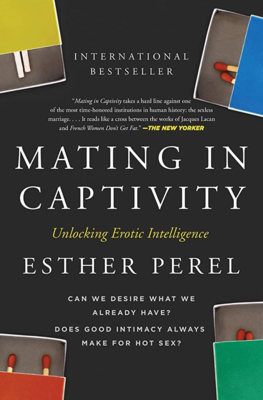
Great book about sexuality, eroticism, attraction, and intimacy in relationships. I found it very valuable and see how it could benefit every relationship out there. The book helped me understand and separate intimacy from sexuality and eroticism. Once they are separate the next part is to balance them. I definitely recommend this book to everybody older than 25yo.
Animal Farm
by George Orwell
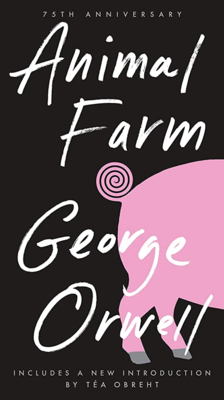
This is such a good book. Written in 1945 it didn't age a bit. It's short, full of meaning and satire. No surprises that it's on the list of best novels. I recommend it to everybody.
King, Warrior, Magician, Lover
by Robert Moore and Douglas Gillette
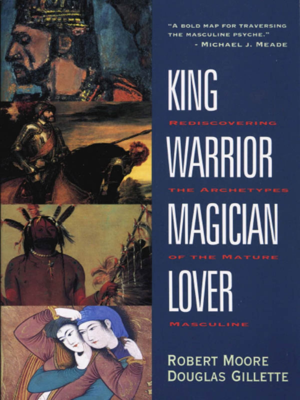
I like the idea but found it very hard to consume. The language felt dated or my English wasn't good enough for it. Although book reviews agree with me on it being dated.
The book talks about men archetypes. It's one of those books that are based on authors' opinions rather than research. I found archetype descriptions interesting but archetypes overall to be limiting.
I want to read a similar book by Rod Boothroyd, which claims to be updated for the 21st century and which has higher user ratings.
As for this book, my opinion is - meh, overrated.
Breath - The New Science of a Lost Art
by James Nestor
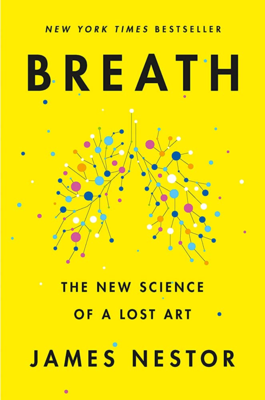
My friend recommended this book and to be honest it wasn't high on my reading list. What's there to know about breathing? Half of me was right and half was wrong.
I was surprised to discover the importance of breath mechanics and effects it could have on our body. The author doesn't offer insights himself but references doctors and researches. Turns out there are people who dedicated their lives to breath research.
However I was right, the book is overblown by unnecessary author's stories. It's funny because it seems that's the only authors content contribution to the book. When removed, the book can be cut by at least half and it will be much better at the end. Hence 2 stars. Not for the topic but for the book itself.
I had to rush it for bookclub, so I finished whole book in 24 hours. I found book interesting and can recommend it. It goes well as audiobook. If you are reading it, skip/skim author's story telling to save you time.
The Millionaire Fastlane
by MJ De Marco

This book is rock solid. I wish it had a more appealing title to ease its way into popularity. Forget popular picks like 4 Hour Work Week and Rich Dad Poor Dad. This book offers much more.
This book is for people who want to be rich and who are looking for ways to get there. No bullshit, no big promises, and core principles - that's how I'd summarise it. I like it especially because it gives the right mindset unlike many popular alternatives.
This book is not for everyone, but rather for people who want a better lifestyle than employment can offer.
The Richest Man in Babylon
by George S. Clason
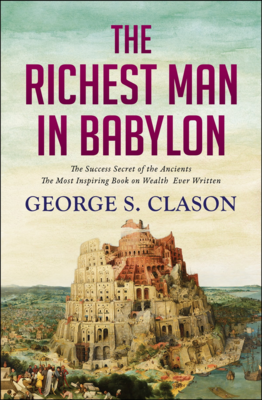
This is one of the old classics, written in 1926. I can't tell if I didn't get the book or I already live the principles in the book so they don't stand out to me. I listened the audiobook and I found it hard to follow due to old english. If you were to read this book try to find updated version of the book with modern language. I think you will enjoy it much more.
I can't recommend it, but it's a story driven, so it should be easy to follow and a bit entertaining. Read highlights on Wikipedia.
Leadership and the One Minute Manager
by Ken Blanchard
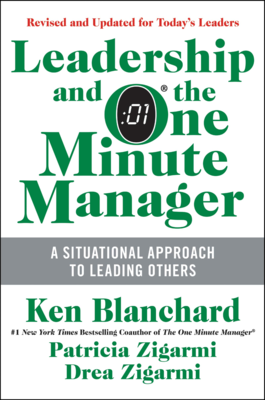
This is a short and story driven book about how people need different management styles at work. In addition management styles need to change as we grow in our roles.
The book's principles correlate with ShuHaRi concept which I'm a big fan of for employee onboarding. I also found similarities in ways to influence teammates from the Resilient Management book. There are four: mentoring, coaching, sponsoring, and delivering feedback.
This book is a must read for everybody - managers and subordinates. Working effectively together is a shared responsibility, not just managers'.
488 Rules for Life
by Kitty Flanagan
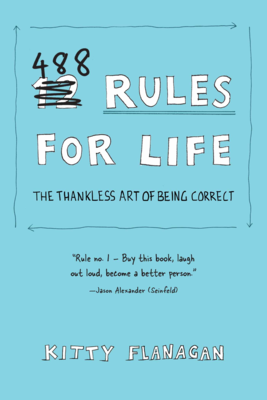
That's a half funny and half option book with a few useful bits in between. I particularly enjoyed the audiobook narration by the author. I think the rules book genre has a big potential if the rules are useful. So if you know a similar book, send it my way.
This book would be a good gift to anybody or a good fit for a beach book.
Powerful
by Patty McCord
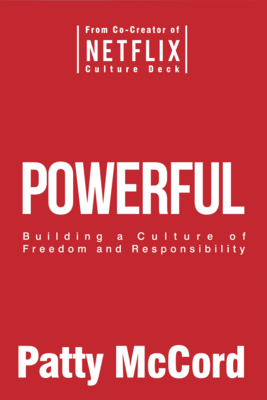
Powerful is a fairly short book (4 hours) which is a longer version of Culture Deck slides. The book is easy to read and very well structured.
Patty describes her work at Netflix as a head of HR. She explains why she made certain choices. Patty provides good reasoning and practical advice. I mostly agree with her points. Most companies, in my experience, are suffering from excessive positivity and family vibes which hurt productivity. Instead of firing underperformers, they are transferred to another team. I'm yet to see a company which has a culture of timely constructive feedback. That's some of the points that Patty touches on.
However it's important to remember the context surrounding her experience. Netflix is a public company which grew at a stunning rate. The challenges they faced are quite different from what any small or large company would. So her advice should be taken with caution.
I'd recommend this book to managers and higher (like cofounders and HR). Just like Nine Lies About Work book, it will help you question industry status quo and think of alternatives.
Running the Room
by Tom Bennett
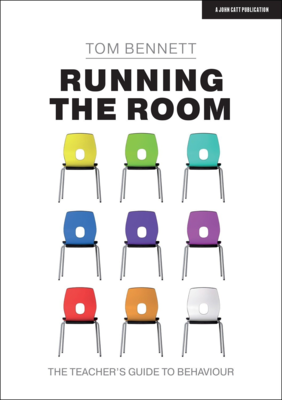
This book is about the classroom but I found half of it is relevant for my daily work when dealing with adults. The main idea is that we need to teach good behaviour explicitly. I fully agree with the author. Social and work rules and norms are usually implicit and unclear. In multicultural society it's even harder as people dilute the norms with their cultural flavour.
The book reminded me of The Art of Gathering. Especially the part of setting explicit rules, protecting the group from bad behaviour and utilising your power.
Some chapters touch on habits buliding. They only cover the surface, and if you want to go deeper, have a look at Atomic Habits book.
I found the book very repetitive with poorly set emphasis in text. A bit disappointing to see that from a teacher. I guess teaching is not writing.
Overall it's a good read and worth it if you want to understand and deal with people's behaviour, good or bad.
The Way of the Superior Man
by David Deida
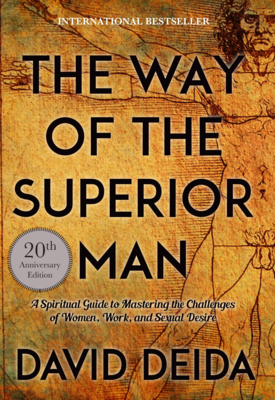
This book was recommended by my friend who said it changed her life. The book offers few models of what men and women are, and what roles they should play in life and relationships. The author doesn't bother explaining or backing up any of it, so as a reader you can only take it at face value.
Author uses sexual language a lot. For example "penetrate" is used 31 times. The book is written in a beautiful metaphorical language which is open to different interpretations. I'm yet to understand what "penetrate the world" means.
Like a popular saying "All models are wrong, but some are useful", some of the book's models can be useful. Some definitely resonated with my experience. The problem is the offered models are on a high level. Think of them as symptoms. It's easy to observe the symptoms and think you understand a disease. However it's not. If you don't know what a bacteria is, you will think "bad spirits" are the cause.
I think advice like "men should do X" with a "just because" reason is dangerous even if it's correct. For each one valid model, there are ten invalid ones.
Overall it's an interesting read. I'd like this book to be rewritten with more substance.
The Five Dysfunctions of a Team
by Patrick Lencioni
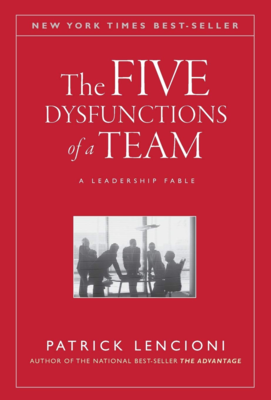
I wish all books were like this one. Great story, practical, short and to the point. I love it. It's a must read for all people who work in a team or in other words all people.
In my experience most teams are all about a positive vibe and avoid any conflict even if it's essential for better results. As a result people don't understand that the lack of conflict is detrimental to work. If you don't know what I mean by "conflict", great, read the book.
I'm a bit surprised that it's only now that the book came on my radar, it should be a part of an essentials pack for everybody.